Definition
Psoriasis is a noncontagious, chronic skin condition that produces plaques of thickened, scaling skin. The dry flakes of skin scales result from the excessively rapid proliferation of skin cells. It typically affects the outside of the elbows, knees or scalp, though it can appear in any location. Some people report that it is itchy, burns and stings. Scales typically develop on joints, such elbows, and knees. They may develop anywhere on the body, including the: hands, feet, neck, scalp, and face. Less common types of it affect the nails, the mouth, and the area around genitals.
Pathophysiology of Psoriasis
Psoriatic skin lesions are the result of inflammation of the dermis and hyperproliferation with abnormal differentiation of the epidermis. The primary pathologic process is most likely dysregulation of activated T cell interactions with antigen-presenting cells and overproduction of pro-inflammatory cytokines such as interferon-α and tumor necrosis factor-α (TNF-α ).
Evidence for this theory derives from the dramatic improvement of severe psoriasis in patients treated with immunosuppressive therapies such as cyclosporine (a potent T cell inhibitor used to prevent transplant rejection) or with TNF-α inhibitors (used in other inflammatory diseases such as inflammatory bowel disease, rheumatoid arthritis, and ankylosing spondylitis).
Recently, additional cytokine mediators, IL-12 and IL-23, have been linked to psoriasis as they promote differentiation of naïve CD4+ lymphocytes into Th1 and Th17 cells respectively.
Types of psoriasis
Plaque psoriasis: It appears as raised, inflamed, red lesions, covered by a silvery, white scales, usually on the elbows, knees, scalp, and lower back.
Inverse psoriasis: Inverse psoriasis appears in the armpits, the groin, under the breasts, and in other skin folds such as around the genitals, and the buttocks. It first appears as red lesions, usually without the scale associated with plaque psoriasis. It may appear smooth and shiny.
Erythrodermic psoriasis: Erythema means reddening. It generally appears on people with unstable plaque psoriasis, where lesions are not clearly defined. There may also be exfoliation, or shedding of the skin, severe itching, and pain.
Guttate psoriasis: Guttate psoriasis often starts in childhood or young adulthood. It appears as small, red, individual spots on the skin that are not normally as thick or as crusty as the lesions in plaque psoriasis.
Pustular psoriasis: It appears as white pustules, or blisters, or non-infectious pus, surrounded by red skin. It can affect certain areas of the body, for example, the hands and feet, or most of the body.
Causes
- Stress
- Cold Weather
- Dry Skin
- Vaccinations: As with dry skin, puncturing the skin during a vaccination may cause a psoriasis flare
- Beta-Blockers and Lithium: Beta-blockers to treat high blood pressure, and lithium for a mental disorder, can make psoriasis worse.
- Upper-Respiratory Infections: Colds and other infections, especially strep throat, activate the immune system and can cause psoriasis to flare.
- Smoking: There’s some evidence that smoking can make psoriasis worse.
- Diet: psoriasis may also have gluten sensitivity, and eating a gluten-free diet can help reduce psoriasis symptoms.
- Alcohol: For some people with psoriasis, having more than one or two drinks a day has been shown to cause it flares.
Risk factor of Psoriasis
Some factors increase the likelihood of developing it include:
- Having cardiovascular disease and metabolic syndrome
- Trauma to the skin
- Family history
Symptoms
- Enlarged red bumps
- Scaly skin
- Blood spots caused by the removal of the dry, scaly areas
- Bleeding on the removal of scaly skin
- Dry flaky skin
- Oil spots near the nail bed
- Itchiness
- Sensitive skin
Complications of Psoriasis
Psoriatic arthritis: This complication can cause joint damage and a loss of function in some joints, which can be debilitating.
Eye conditions: Certain eye disorders — such as conjunctivitis, blepharitis and uveitis — are more common in people with this disease.
Obesity: People with it, especially those with more severe disease, are more likely to be obese. It’s not clear how these diseases are linked, however. The inflammation linked to obesity may play a role in the development of psoriasis. Or it may be that people with psoriasis are more likely to gain weight, possibly because they’re less active because of their psoriasis.
Type 2 diabetes: The risk of type 2 diabetes rises in people with psoriasis. The more severe the psoriasis, the greater the likelihood of type 2 diabetes.
High blood pressure: The odds of having high blood pressure are higher for people with psoriasis.
Cardiovascular disease: For people with psoriasis, the risk of cardiovascular disease is twice as high as it is for those without the disease. Psoriasis and some treatments also increase the risk of irregular heartbeat, stroke, high cholesterol, and atherosclerosis.
Metabolic syndrome: This cluster of conditions including high blood pressure, elevated insulin levels and abnormal cholesterol levels increase your risk of heart disease.
Other autoimmune diseases: Celiac disease, sclerosis and the inflammatory bowel disease called Crohn’s disease are more likely to strike people with psoriasis.
Parkinson’s disease: This chronic neurological condition is more likely to occur in people with this disease.
Kidney disease: Moderate to severe psoriasis has been linked to a higher risk of kidney disease.
Emotional problems: It can also affect your quality of life. Psoriasis is associated with low self-esteem and depression. You may also withdraw socially.
Diagnosis and Test
In most cases, diagnosis is fairly straightforward.
- Physical exam and medical history. Your doctor usually can diagnose by taking your medical history and examining your skin, scalp, and nails.
- Skin biopsy. Rarely, your doctor may take a small sample of skin (biopsy). He or she will likely first apply a local anesthetic. The sample is examined under a microscope to determine the exact type of psoriasis and to rule out other disorders.
Treatment and Medications
There are three main kinds of treatments:
- Medicines can include creams, lotions, and ointments that are put directly on the skin. They also can include pills and injections (shots).
- Light therapy, or phototherapy, means exposing the skin to natural or artificial ultraviolet light. A doctor may recommend you go outside and get a little more sun, but too much sunlight can make it worse.
- Systemic therapy – these are immunosuppressive agents and immune modulators and are usually reserved for severe/refractory cases.
Home Remedies
- Olive Oil: Apply the oil over the patches that develop on the skin as a result of it.
- Reapply the oil every few hours.
- Rosehip oil: Apply this oil on the affected area and leave it on. Apply a couple of times during the day.
- Flaxseed oil: Place a few drops of this oil on the affected area and massage it for a few minutes. Use this oil three to four times a day.
- Coconut oil: Apply coconut oil liberally on your body, preferably after taking a bath. Do this every day for healthy skin.
- Neem oil: Apply neem oil on the affected areas either using your finger or with a cotton ball. Reapply the oil twice a day.
- Fish oil capsules: Pierce the capsule to extract the oil present inside. Apply it directly to the skin to get momentary relief from the discomfort caused by psoriasis. Also, consume fish oil capsules on a daily basis.
- The Dead Sea Salt Treatment: Add the sea salt to the warm water and soak in its goodness for 15 to 30 minutes. Rinse your body with clean water after. Soak in this relaxing bath every other day.
- Epsom Salt: Mix the salt in the water. Soak in this water for 15 to 20 minutes and then, rinse your body with normal water.
Prevention
- Eating fewer protein-rich foods—primarily meats and dairy products—may help alleviate flare-ups.
- Get fish oil in a pill. Researchers around the world have tested fish-oil supplements as a treatment, often with excellent results.
- Heal with beta-carotene. Vitamin A is essential for healthy skin. But in too-large doses, the vitamin can have serious side effects.
- Stop stress from affecting your skin by the following meditation
 Diseases Treatments Dictionary This is complete solution to read all diseases treatments Which covers Prevention, Causes, Symptoms, Medical Terms, Drugs, Prescription, Natural Remedies with cures and Treatments. Most of the common diseases were listed in names, split with categories.
Diseases Treatments Dictionary This is complete solution to read all diseases treatments Which covers Prevention, Causes, Symptoms, Medical Terms, Drugs, Prescription, Natural Remedies with cures and Treatments. Most of the common diseases were listed in names, split with categories.


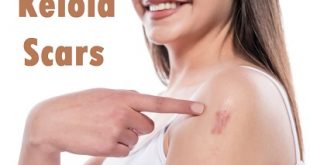
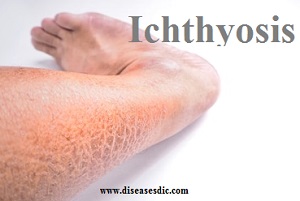
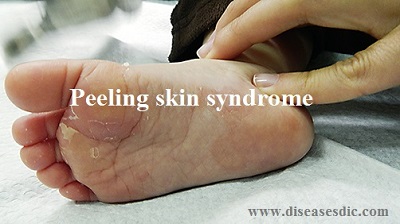
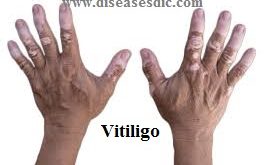
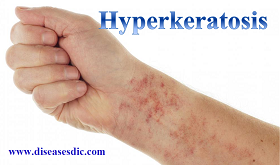

am grateful for this lecture that I have received today thanks for elaborating my brain.
am grateful for this lecture that I have received,thanks for elaborating my brain.
I have learnt a lot on this app.
Please can you give me details about cyst
A cyst is a closed sac, having a distinct membrane and division compared with the nearby tissue. Hence, it is a cluster of cells that have grouped together to form a sac (not unlike the manner in which water molecules group together, forming a bubble);
it’s very helpful for a common man to educate thank U
Good, simple notes
please help me how to prevent and cures my psoriasis.please help me
Please consult a doctor. Follow some home remedies.
great bro
uncontrollable itching…my arms and fingers. how can your body turn you into being gluten free?
Please take gluten-free food. The foods that contain gluten should be removed from your diet.
this is good things about my sickness thanks so much brother
what causes the skin to weep and burn? What can be done about it?
Any bacterial infection and allergens can cause this.
what is New medicine for psoriasis
Adalimumab (Humira), a TNF-alpha-blocking antibody.
Adalimumab-adbm (Cyltezo), a biosimilar to Humira.
Brodalumab (Siliq), a human antibody against interleukins.
Etanercept (Enbrel), a TNF-alpha blocker.
I am suffering from psoriatic arthritis for the last five years. Kindly advice effective treatment. Regards
Please consult a doctor.
I’m 52yrs old I have been living with psoriasis more than 30yrs. mostly i use diprofose injection but Dr told me never to use anymore coz it can cause me diebates. please help me
Please consult a doctor.
Please tell us the new medicine for this ill
Please read from the post.
how can I get rid of black spots on my skin as a result of yourmy psoriasis that has been going on since I was 8..and now I’m 23
Please consult a dermatologist.
please tell me the proper treatment of my psoriaisis
Please have a glance at the post for treatment.
My doctor recommended me phototherapy. but I am scared. plz tell is it safe?
Have a second opinion with another specialist.
How does psoriasis skin disease can be infectious to liver & what problem specifically can it cause to the liver.
Psoriasis drugs can cause liver disease and lung problems.
please send capsules , cream name and suggest me dry skin
Vitamin E capsule is very effective but we recommend you to contact a dermatologist for appropriate treatment.
why psorasis permanent treatment?
psoriasis is not currently curable. However, it can go into remission, producing an entirely normal skin surface. Ongoing research is actively making progress on finding better treatments and a possible cure in the future.
does psoriasis has cure most especially plague on sole of foot pls help
There’s no cure for psoriasis yet, but there are many ways to get relief from the symptoms of this troublesome disease.
am suffering from psoriasis last 8 years in my hand fingers. please suggest some ointment to reduce psoriasis.
For psoriasis on the fingers, topical corticosteroids like clobetasol propionate or calcineurin inhibitors such as tacrolimus may be prescribed by a healthcare professional. Additionally, emollients or moisturizers can help manage dryness. However, it’s crucial to consult with a dermatologist for a proper diagnosis and a personalized treatment plan based on the severity of your psoriasis.
i have the thick like dry skin or soriasis on my scalp and i get sores on my scalp that i have to pop i need help plez
I m suffering from psoriasis for last years and taking medicine but it increas in winter, plz tell me che apest treatment I m also diabetic.
Managing psoriasis in winter, especially for individuals with diabetes, involves moisturizing regularly, avoiding hot showers, and using gentle, fragrance-free skincare products. Over-the-counter moisturizers and topical treatments may provide relief, but it’s crucial to consult with a healthcare professional for personalized guidance, considering your diabetes and overall health. Additionally, maintaining good blood sugar control is essential for optimal management.